As will be discussed below, the unfortunate historical reality is that most all of the VERY LARGE economic progress that occurred in the US during the 20th century was fueled by the emergence of new technologies and this seems to have married Science and Technology forever - we will examing possible downsides of this view of science later.
For example:
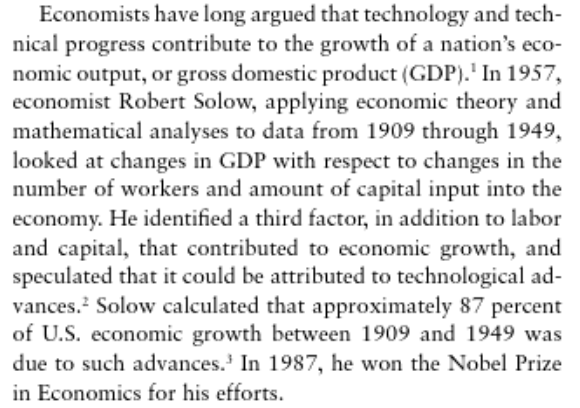
87% of economic growth due to developed technology! Wow, that will drive the value system of the world for decades. One thing you will get out of this value system is Climate Change! Climate Change is the unintended consequence of GDP escalation.
The "social rate of return" has been suggested as a way to evaluate the impact of federal funding. Of course this is arbitrary but nonetheless has been used.
For Example:
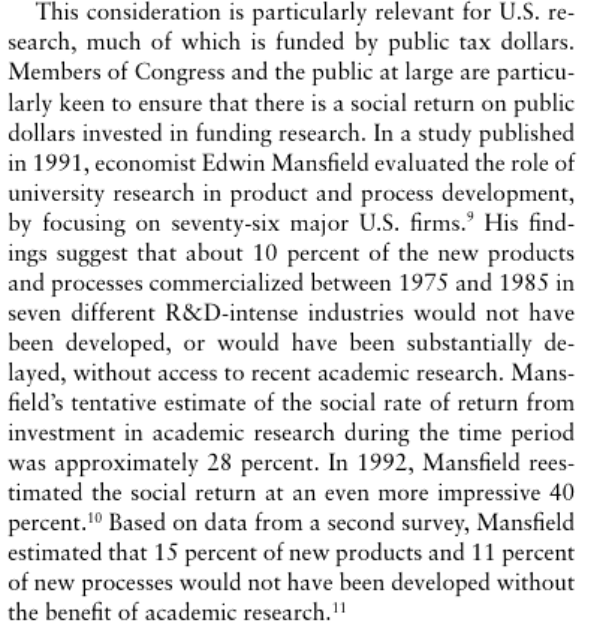
Not sure what the message is here:
- That academic research contributes rather lttle (10-15%)
- That the index can go from 28 - 40 % by just altering the study a bit?
Imagine what might have happened if it were shown that academic research is what consitutes 50% of new products and new technology ... Again, this is what tech transfer and the Bayh Dole act (which is discussed in detail in Chapter 6 and also in upcoming discussion questions) was supposed to facilitate. Indeed, this also seems to be the main thrust of the Knight Campus where "accelerated scientific input" means medical devices for people.
A far better way of showing impact is provided by how the industry development of the MP3 player required to a far ranging set of devices to have been previously developed. Now if only the equivalent could be done for University Research, significantly better times for the Research University would be had.
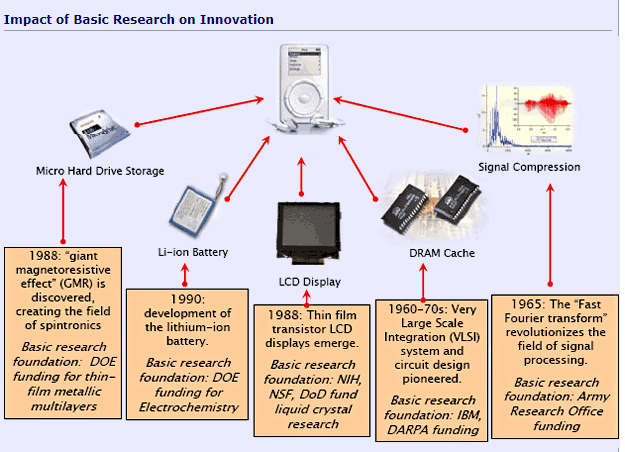
The discovery of GMR had an enormous impact and this was awarded the Nobel prize in 2007. Unfortunately for US universities, this discovery was made by researchers at European Universities.
The Emergence of the GPRA:
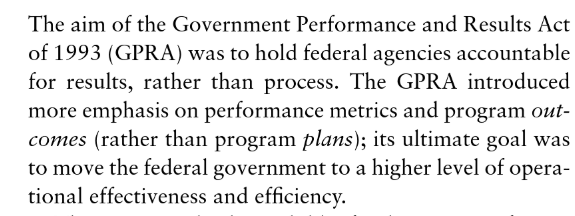


What might the problem be with this approach when agencies need to file their GPRA to congress on an Annual Basis? Would we have gone to the moon under this requirement?
While Congress used the GPRA has a way to gather information on performance as a way to guide resource allocations, there could be an unintended consequence as first suggest in 1997:
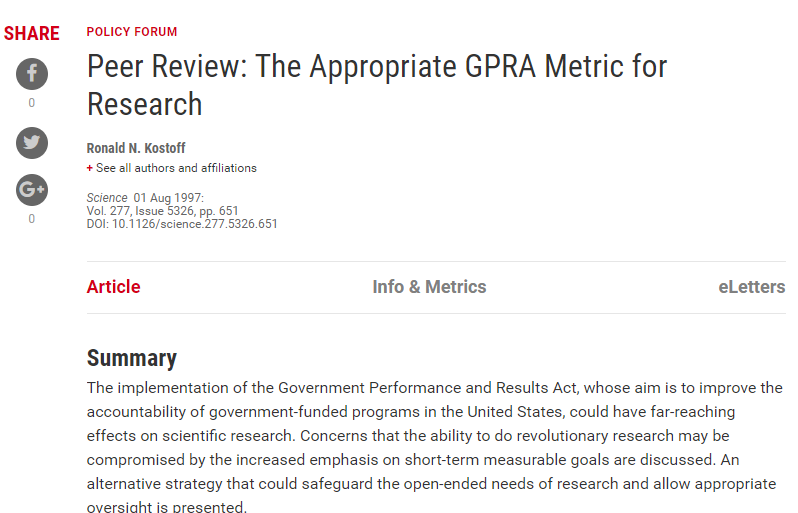
Your extinguished professor's first federal research grant was awarded in 1980 (yeah that's 40 years ago) and your extinguished professor has observed strong evolution in NASA and the NSF (NASA is worse). In general, the GPRA encouraged agencies to focus more on the short term than the long term and even to develop new kinds of programs (in the case of NASA, grants of one year in duration) that had a higher probability of producing a performance metric for the GPRA. Since basic research is oriented towards the long term, the emergence of the GPRA has significantly compromised the ability for the US to discover something (in the long run) or even to conduct a long term experiement.
If progress is measured only by short term, and often incremental success, the long term is significanly compromised. This is a bigger deal than most people realize and no one in congress seems to care anymore about investing in long-term research as a rule to guide federal investments in science.
This same short-term vs long-term evaluation metric occurs in the Business world but in that world, there seems to be real research that is supporting the value of the long term view.
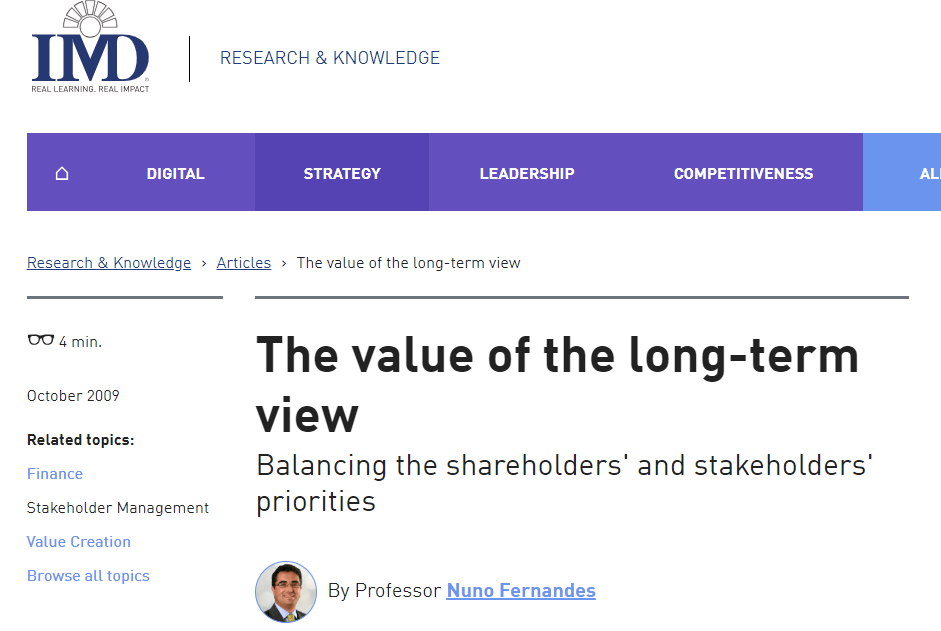
While the National Academy of Sciences does foster and publish
Decadel Surveys there really is no accountability at all.
Your extinguished professor was highly involved in this one:

Only about 25% of the "goals" and ideas were implemented but there was no penality for "failure".
|